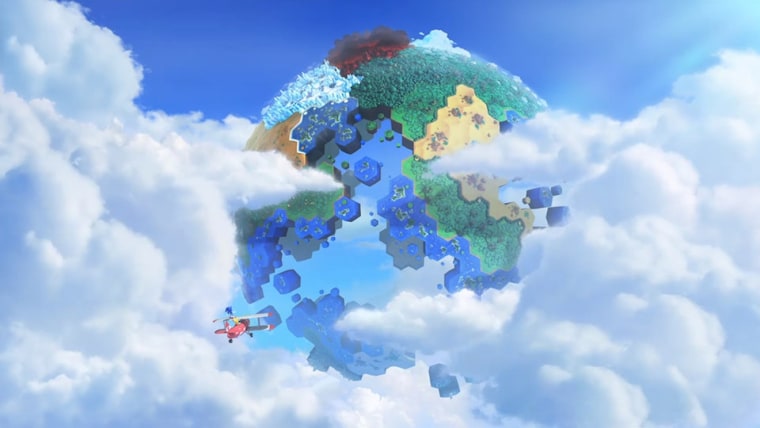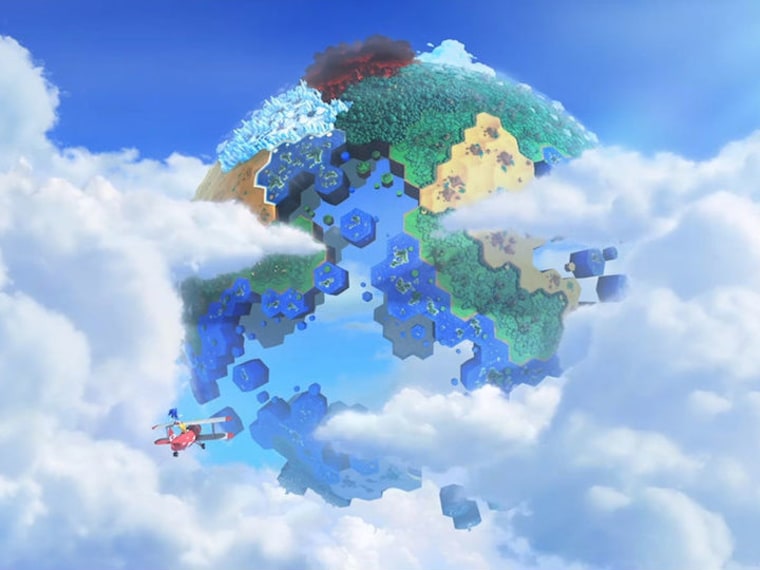
Friday, Nintendo took to its online Nintendo Direct platform to announce the latest batch of games for the new Wii U console. Most of the games showcased were standard Nintendo fare — Mario, Luigi, and Pikmin all made big appearances. The company even announced a new partnership with Sega to bring several "Sonic the Hedgehog" titles exclusively to the Wii U and Nintendo's popular mobile gaming console, the 3DS.
Except for the aforementioned hedgehog, however, the Nintendo Direct announcement demonstrated the same suspicious lack of third-party titles that has plagued Nintendo's new console ever since it launched late last year. Video game consoles, like any type of consumer hardware, operate under a razor/razor blade business model — the manufacturer sells the device at a loss in the hope of recouping its investment with software purchases (video games). Without a strong line-up of third party titles, a console developer will suffer from what analysts politely call a "software problem."
Unfortunately for Nintendo, just hours before it took to the virtual stage to announce its newest offerings, this problem went from bad to worse. Little more than a week after Electronic Arts (EA) affiliate and "Battlefield" developer DICE made it depressingly clear that it had all but ruled out developing games for the Wii U, EA revealed that it's not working on any Wii U titles at the moment.
That's according to a statement EA representative Jeff Brown gave to Kotaku. While he said that EA hadn't ruled out the possibility of making Wii U games in the future, the company has "no games in development for the Wii U currently."
Brown's statement sounded like EA was basically taking a U-turn on its current relationship with Nintendo. At the 2011 game industry convention E3, EA announced that it was partnering with Nintendo to support its new console through its launch.
"What Nintendo's new console delivers speaks directly to the players of EA Sports and EA Games," John Riccitiello, who was then CEO of EA, said at the end of Nintendo's press conference that year. "Nintendo's new console will produce brilliant high-definition graphics and new gameplay opportunities. We look forward to seeing great EA content on this new platform."
Well, that was fast. The EA Sports label told Eurogamer Friday that it was not making Wii U versions of either of its most popular sports titles — "Madden NFL" or "Fifa 14."
Later Friday, Brown clarified what he called a "misunderstanding," telling NBC News that EA still "has a strong partnership and an active agreement with Nintendo to develop games for the Wii U."
"Last year we released 'Mass Effect 3' and several of our EA SPORTS titles on that platform," Brown added. "So far, we have not announced any new titles for Wii U this year, but that does not preclude more games in the future."
Diplomatic phrasing aside, it's difficult to overstate Nintendo's current dilemma. The Wii U has only been on the market since last December, and EA has worked with Nintendo since the console's release to adapt versions of popular games like "Mass Effect 3," "Fifa 13" and "Need for Speed: Most Wanted" to the device.
Despite this seemingly amicable relationship, EA's partnership with Nintendo began to deteriorate as the Wii U struggled to stake its claim in the competitive console market. A person familiar with the matter told NBC News Friday that there were "rumblings from a high level at a major publisher" about the prospect of working with Nintendo on the Wii U.
EA is not a company that any console developer wants to hear "rumblings" from. Second only to Activision in terms of revenue, it publishes many of gaming's biggest franchises including the popular military shooter "Battlefield" and the annual sports games "Madden" and "Fifa." Besides "Call of Duty," these are the most lucrative software products that Nintendo can bring to its new console. The fact that DICE's technical director wrote off the Wii U's compatibility with his company's game engine as "not too promising" suggests that EA sees development for the Wii U as simply not being worth the extra time and effort.
Losing franchises like "Battlefield," "Fifa," and "Madden" is bad enough, but what about any future EA games? When EA announced its partnership with Disney that gives it exclusive rights to produce new "Star Wars" games, it said that any new console games would be produced by DICE and Visceral — both of which use the Frostbite engine. Any other "Star Wars" games would be firmly entrenched in the "casual gaming" category, meaning that they'll appear on smartphones and tablets.
So "Star Wars" games may be out of the question too. Then what's left to produce for the Wii U? Apparently, EA doesn't even know the answer to that question any more. With such a high-profile developer jumping ship, Nintendo faces a problem that Wedbush Securities analyst Michael Pachter identified late last month after the company reported weak Wii U sales and a diminished full-year financial forecast.
"It doesn't appear they're going to get long-lasting third party support," Pachter told NBC News last month. "The ones that did support are going to abandon it if it doesn't sell better."
Yannick LeJacq is a contributing writer for NBC News who has also covered games for Kill Screen, The Wall Street Journal and The Atlantic. You can follow him on Twitter at @YannickLeJacq and reach him by email at:ylejacq@gmail.com.
